Business Formation Fujairah
Fujairah is situated along the Gulf of Oman. It has a coastline of more than 90 kms. The Ruler is His Highness Sheikh Hamdan Bin Mohammed Al Sharqi. The population of Fujairah at the end of 1999 stood at 92,000.The area of this Emirate is 1165 square kilometer, which is equivalent to 1.5% of the country’s total area excluding the islands. Fujairah has a port an airport. This is only international airport, in UAE, at the Eastern Coast. Because of its beautiful location, Fujairah Government is giving top priority to the tourism industry.
01
Government and Rulers of Fujairah
‘The bride of the Emirates,’ as Fujairah is known, is ruled by Shaikh Hamad bin Mohammed Al-Sharqi. The entire area in the Emirate is owned by the Shaikh personally, as there is no distinction between state and personal wealth. The ruler holds the right to make or alter any decisions with respect to any rule and has the option to operate in a completely autonomous manner.
Shaikh Hamad bin Mohammed Al-Sharqi heads the cabinet of Fujairah with his immediate family members, with a few members of respected local families comprising the rest of the cabinet and advisory committees. When a cabinet ruling is passed, it has to be sanctioned by the Shaikh himself, after which it becomes an Emiri Decree and is enforced immediately. A decree from the Ruler of Fujairah in April 1969 established the Fujairah Municipality.


02
The municipality is committed to improving the standard of living of people in all major sectors – health, education, cleaning, transportation, roads, water & electricity, city & village planning and protection of the environment. The Municipality plays a vital role in the economic and commercial activities in Fujairah. It has fairly simple and straightforward regulations for issuing of licenses for commercial, service, industrial, building and construction activities.. The Department of Industry and Economy is the focal point of all economic activities in Fujairah. The department plays an important role in working out regulations and plans for the Emirate’s holistic development. Its major functions include supervision and direction of economic growth and conducting studies on new investment projects in various fields of agriculture, industry and commerce.
Infrastructure
Fujairah’s sole, strategic and unique location on the East Coast of the UAE plays a key role in its economic development. In recent years, the country’s fourth largest city has experienced unprecedented investment and development to accommodate the growing demands of tourism and multinational corporations.
With the commitment of the Ruler of Fujairah, Sheikh Hamad bin Mohamed Al Sharqi and the Federal Government, development plans for the next five years include new hotels and beach resorts and a multi-storeyed entertainment and shopping complex. In addition, expansion and development of the region’s famous ceramic and horticulture industries continues.
The infrastructure in this Emirate has improved at an astonishing rate. UAE’s national telecommunications company provides state-of-the-art services at very competitive rates. These include telephone lines, mobile phones, facsimile services, telex, general paging and internet products. The services are very effective and provide instant communication features.
The Port of Fujairah is close to the Free Zone to allow investors to derive maximum benefit from Fujairah’s strategic location. By using the shipping services available, investors have access to all Arabian Gulf ports, the Red Sea, Iran, India and Pakistan on weekly feeder vessels. Mainline services arrive from the UK, Northern Europe, the Mediterranean and Far Eastern countries and North America on a weekly service. The port also handles bulk dry cargos, Ro/Ro cargo, livestock and general cargo in addition to regular containers.
Fujairah International Airport is a port of call for Gulf Air, Indian Airlines, Egypt Air and CIS Airlines as well as several cargo carriers and operators. Being the only airport serving the UAE East Coast as well as Northern Oman, it is equipped with the latest and the best modern aviation and air cargo handling technology. Its proximity to Fujairah sea port and its common customs facilities lead to speedy hassle-free operations for Sea/Air cargo.
Free Zone clients can benefit from the exemption of customs duties on imports of all commodities and finished products for the purpose of export and re-export outside the UAE. Clients need not pay duties on factory machinery or raw material used in production.
Despite the city’s growth, Fujairah has retained its unique beauty, exotic mysticism and rich cultural heritage earning it the name of ‘Jewel of Arabia’.
Economy & Business in Fujairah uae
Under the prudent direction and guidance of Sheikh Hamed Bin Mohammed Al Sharqi, Member of Supreme Council and Ruler of Fujairah, the Emirate has shown tremendous development in economic, political and social fields.
The focal point of all economic development in Fujairah is the Department of Industry and Economy which was established in November 1980 under the Chairmanship of Sheikh Saleh bin Mohammed Al Sharqi. The department plays an important role in working out regulations and plans for the Emirate’s comprehensive development. The functions of the department include supervision and direction of economic activities and preparation of feasibility studies on new investment projects in the agricultural, industrial and commercial fields. The financing and implementation of infrastructural projects are also done by this department.
Fujairah’s economy is based around subsidies and Federal Government grants that are distributed by the Government of Abu Dhabi (the seat of power in the UAE). Local industry consists of cement, stone crushing and mining. These industries have witnessed a resurgence due to the frenzied construction activity taking place in Dubai, the commercial powerhouse of the country. Notably, there is a flourishing free-trade zone.
Federal Government departments employ the majority of the local workforce with few opening businesses of their own. Local citizens prefer to work within the service sectors and benefit from the generous commercial laws which prohibit foreigners from owning more than 49% of any business or enterprise. Some of the reasons why the free zone authorities have flourished to such an extent are due to the relaxation of this rule within their boundaries and allowing full foreign ownership. Shaikh Saleh Al Sharqi, younger brother to the Shaikh, is widely recognized as the driving force behind the commercialisation of the economy.
Unemployment, however, remains a grave concern for the Government. Conservative figures put the unemployment rate at 50% – 60%, which is amongst the highest in the world. Poor wages are also a source of embarrassment for the authorities, with construction workers at the bottom of the pyramid. On average a 12-hour working day, starting at 7 am and ending at 8 pm, will only provide about US$8 – US$10, out of which the workers pay for meals, transport and entertainment!
Fujairah’s economy is based on fishing and agriculture. Like Ras Al Khaimah, the land in Fujairah is irrigated by rainwater from the Hajjar Mountains, making it ideal for farming.
History & Traditions
The Early Years
Anciently known as ‘the Land of the Sea Giants’, the Emirate of Fujairah dates back to the last couple of centuries and is evidenced to have had people living there even before Christ. The name Fujairah was quoted from the name of one of the ancient water streams. With the destruction of Maa’rab Dam some of Fineeqian tribes emigrated to this part of the region and subsequently the tribes of Sharqeyeen were born.
This tribe has been the principal building block of UAE society with successive waves of migration beginning in the middle of the first millennium BC. The varied terrain which these tribes inhabited, i.e. desert, oasis, mountains and coast, dictated the traditional lifestyles that evolved over the centuries, but the common thread was the resourcefulness people displayed in exploiting the harsh environment. This was assisted by the age-old social structure in which each family was traditionally bound by obligations of mutual assistance to immediate relatives and to the tribe as a whole. Among the tribe an individual’s selfless hospitality determined their honour and pride.
Fujairah also saw many important battles relating to Islamic history after the war of apostasy. The history of Fujairah goes back to the reign of Sheikh Mohammad Bin Matar, head of the tribe of Al Sharqiyeen, who is credited for uniting the tribes of the area. Fujairah was a British protectorate until it joined the United Arab Emirates in 1971. The founding and independence of the Emirate is due to Sheikh Abdulla Al Sharqi and his son Sheikh Hamad Bin Abdulla Al Sharqi. Then the Emirate was ruled by Sheikh Mohammad Bin Hamad Bin Abdulla Al Sharqi during whose reign the Emirate enjoyed independence and sovereignty. His Highness Sheikh Mohammad Bin Hamad Bin Abdulla Al Sharqi played a proactive role with his brothers in ensuring that Fujairah joined the UAE federation.
Architecture – Past and Present
Earlier the architecture of Fujairah reflected the traditional lifestyles and customs of the people. Easily portable tents provided shelter during tribal wanderings in the winter season. During the summer months spent in the date-palm plantations, home was an airy ‘arish’ made of palm fronds. &’Arish’ were also common in the coastal fishing, pearling and trading settlements. Inland, more permanent houses were built of stone ‘guss’ (mud mixture made into blocks) and were roofed with leaves of palm trees. Fossilized coral, cut in blocks, bonded with ‘sarooj’ (a blend of Iranian red clay and manure), or a lime mixture derived from seashells, and plastered with chalk and water paste, was used extensively in coastal regions. Privacy and ventilation were important influences in the layout of the houses.
And now with the changing skylines of the other Emirates, Fujairah is not far behind. The economic prosperity and population explosion brought modern designs, newer building materials and technology that rapidly replaced vernacular architecture, which is now confined to museums and heritage centers. Today, sleek glass-fronted skyscrapers have altered the urban landscape and announced the drive to modernisation that Fujairah has embarked upon.

Climate
Fujairah is warm for most of the year. Being the only Emirate in the UAE which is mountainous, Fujairah enjoys more than average yearly rainfall as compared to the other emirates and generally remains cooler than the other Emirates. Rainfall in this Emirate helps farmers yield a good crop every year.
The months from October to March are generally the coolest, with daytime temperatures averaging around 25 and not usually going above 30 degrees Celsius.The summer months have temperatures ranging between 35 to 40 degrees Celsius and in recent years this has been rising above 40. This period also coincides with the rainy season and this is when Fujairah experiences the bulk of its precipitation.
Freezone
-

Business Setup In UAE Free Zones
Company Formation & Registration, Incorporation in UAE Free zones…
-
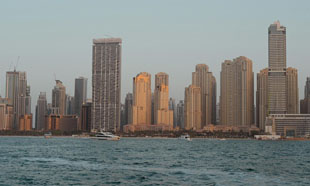
Freezones in Dubai
The UAE business environment is divided into two sectors: onshore and offshore…
-
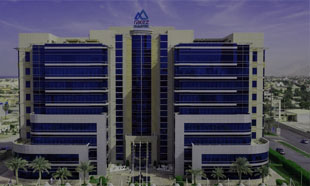
Ras Al-Khaimah Free Zones
Ras Al Khaimah (RAK), located only 45 minutes away from business hub Dubai..
-

Abu-Dhabi Free Zones
Business venture establishment in one of the free zones in Abu Dhabi is an alluring option for foreign..
-

Sharjah Freezone
The Sharjah freezone provides foreign investors with an opportunity to set up their business in the UAE…
-
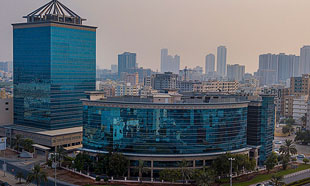
Ajman Free Zone
Looking into setting up a business in one of the free zones in the UAE? Consider going for an Ajman free…
-
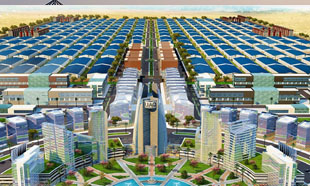
UAQ Free Zone
The Ahmed Bin Rashed Port & Free Zone is located on the West Coast of the United Arab Emirates,…
-
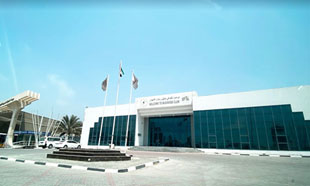
Fujairah Free Zone
Fujairah’s strategic & unique location, as the UAE’s only Emirate on East Coast…
-

2,300+ Real Customer Reviews on Google.
<!–
Fujairah’s strategic & unique location, as the UAE’s only Emirate on East Coast…
–>
Get A QUICK QUOTE
WE GET BACK WITHIN A COUPLE OF HOURS.
Setting up a business in the UAE can be an overwhelming experience for the uninitiated but we can make this job truly easy for you. Talk to our expert consultants for free & decide the best course of action for yourself, today.

